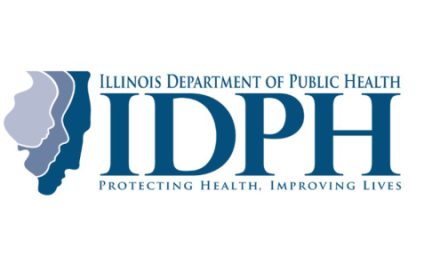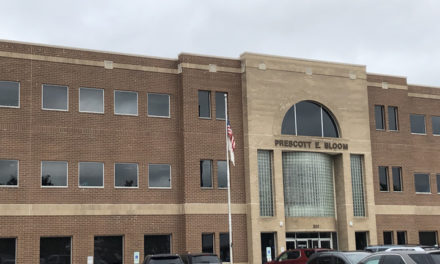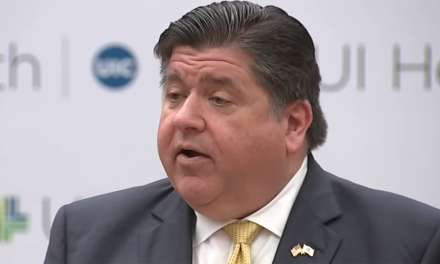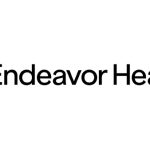
Jim Pickett of the AIDS Foundation Chicago talks development of HIV vaccine
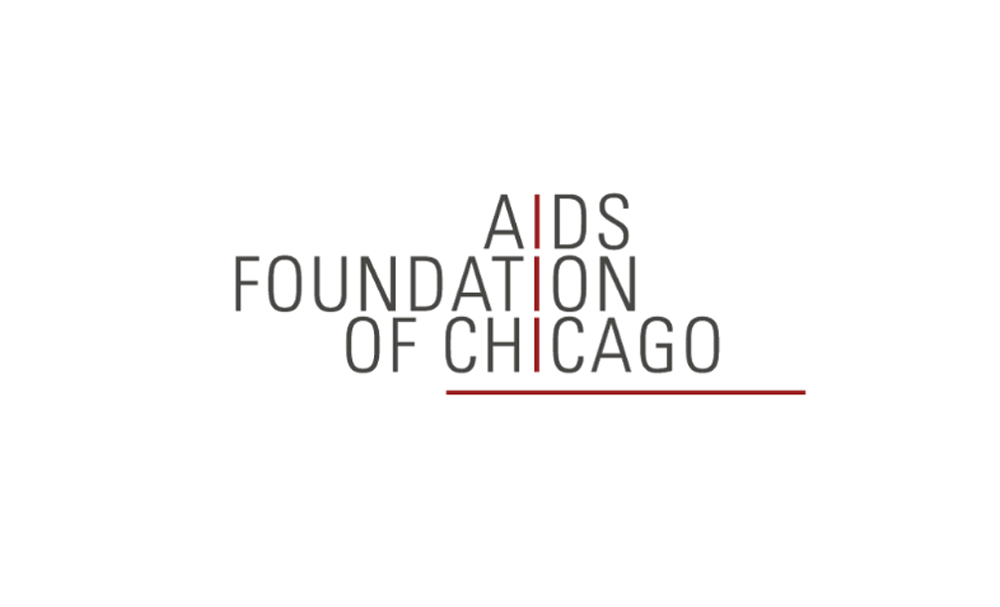
The global effort to develop a COVID-19 vaccine has given new hope on the development of an HIV vaccine, said Jim Pickett, the AIDS Foundation Chicago’s senior director of prevention advocacy and gay men’s health.
Pickett spoke with Health News Illinois this week about the unique challenges in developing an HIV vaccine, how work to develop the COVID-19 vaccines can be used in the effort and what a vaccine could mean for the Getting to Zero Illinois initiative.
Edited excerpts are below.
HNI: Why is it so important to develop an HIV vaccine?
JP: The reason why it’s so important to research and develop an HIV vaccine is that it is really one of the missing tools we have in our prevention buffet, or the missing option. Having a vaccine, most experts would say, is required to really bring the epidemic to an end. We have very powerful new prevention options already here and coming. In the next year we’re gonna have an injectable form of PrEP. So that’s pretty amazing. We have an injectable form of treatment right now and we know that when people are adequately treated, they can’t transmit HIV to their partners. But a vaccine is kind of the holy grail. A vaccine that is durable and is safe and effective is just really critical. We’re not there, but we’ve been at it for over 30 years, and I do believe we’re getting closer.
HNI: How close do you think we are?
JP: Since we’ve been doing this for 30 years, some vaccines have taken almost 100 years and then we have the COVID vaccine that took one year. I’m not going to look at my crystal ball and put any bets down in terms of years because it’s really tricky and I’ll tell you a couple of reasons why. HIV mutates a lot. It hides from the immune system. It kills the T-cells components of your immune system directly. And so this makes it a real wily character to try to create a vaccine around. The other thing to say about HIV is that no human has ever successfully cleared HIV from their body on their own with their own immune system. For instance, people who have had COVID have been able to do that. So it’s really, really hard. It’s a tough customer, basically.
I think the other challenge that we’ve really seen that have been lessons from COVID-19 is that we need to have adequate resources, we need focus, we need political will, and we need broad collaboration, cooperation and coordination around the globe. Just to compare, in all of the years that we’ve been doing HIV vaccine development work, the price tag so far for all the years combined is about $15 billion. So that’s not chump change, that’s some real money. But then you look into what went into developing the COVID vaccine in one year, $39 billion – with a B – was devoted to a COVID vaccine. Those resources were really, really important, and that kind of political will that it generated and then all the collaboration, cooperation with all the smart people in the world, communities all over the world and public health people all over the world really engaging, single-mindedly focused, looking for a vaccine to help us deal with this crazy pandemic. So we need that kind of focus, we need that kind of collaboration on the vaccine side. Eight hundred and forty-eight million dollars was spent on vaccine development in 2019. That number has been flat for something like a decade. A decade of flat funding isn’t going to get us anywhere and doesn’t take into account just regular inflation and cost of doing business increases. So it’s actually a reduction.
HNI: With regard to the HIV vaccine, is there growing interest or a growing call for collaboration for a similar sort of combined global effort?
JP: Absolutely, there’s a clarion call coming from all kinds of different quarters, from researchers, from advocates like myself, from public health folks, from other stakeholders and politicians around the world. We really realize that this is what’s required. I think we knew this already, but like a lot of things, COVID revealed again in all its ugliness where we’re falling short. And so this is one of the areas. I get the sense there’s a broad consensus that we need to do this. Now they really need to have the political will to provide the proper resources to make this sort of thing happen. This doesn’t just happen because we have a lot of people who are passionately committed to it.
I think the really good thing about this last insanely crazy year was what the world learned about vaccines. All of a sudden everyone in the world is thinking about vaccine science, is learning about vaccine science and is learning about viral science. We’re far more engaged on this topic than ever. So we have way more interest in the idea of vaccines. And what brought us to the place where we could have a vaccine for COVID in a year was the work of, frankly, a lot of HIV researchers and scientists over the last few decades who have been working and working and working on platforms, a lot of the platforms that have been used successfully in the few vaccines. They’ve really got it to a place where we can go to the next step. So now we’ve seen it go to the next step and we can come back full circle. So COVID learned from HIV. COVID really benefited from the incredible expertise of our HIV research established globally. Now what we learned from COVID can come back. So we’re already seeing strong interest in using mRNA technology as a platform to deliver an HIV vaccine. So there’s already early work being done on that.
A lot of people came to me and said, ‘Well, what the hell, man? We’re pumping out COVID vaccines every week, and there are all these different options globally, so what’s going on with HIV?’ So I think that energy can be really harnessed. We understand the challenges we’re up against, but we have a pathway. We have some learnings that we’ve engaged in collectively in the last year that can move this forward. I’m not going to guess on the time or the year. I still think we’re several years away, but I think we can truly say without being hyperbolic that we’re closer.
HNI: What do you tell people that ask why It took a year to develop a COVID-19 vaccine, yet we don’t have one yet for HIV?
JP: It’s a combination of things. First of all, HIV is a really, really tricky character, and COVID is not. I mean COVID is very easy to transmit, COVID is deadly. But people can clear COVID and we were able to figure out the COVID virus very quickly. The fact that HIV latches on to the immune system, uses our own immune system against us. It mutates. It can hide from our immune system. There are multiple subtypes of HIV around the world. One vaccine isn’t gonna cover this. We’re going to need a variety of manufactured vaccines that have various effects that are able to address many different kinds of HIV at the same time. So we just have this really uniquely challenging and diabolical virus. It’s different from COVID.
Also, it’s like what I was saying with what worked with COVID, having so much focus, so much energy, so much brainpower. Like you can see a spotlight shining on one spot. I don’t think we need to have $39 billion in a year, but we certainly need to do more than flat funding from the United States for 10 years. We need more to do this adequately and to pay for all of this to happen.
HNI: Along with funding, what more can policymakers do to help?
JP: We need to continue to support the rest of the HIV prevention research portfolio. So I mentioned, there are new formulations like pills you can take on a daily or semi-daily basis to protect against HIV. We’re going to have an injectable PrEP where a person can get a shot six times a year and protect against HIV. In development, there’s one pill you take once a month that provides protection. There are subcutaneous injections being developed … a really interesting array of things that could fit into a variety of people’s lives and give them choices as individuals and then choices across the lifespan and across your sexual life. We want to continue to support that because at the end of the day, and this is where I will get into something that is about vaccines as well, we’re going to need all of these tools. And we are seeing right now the vast majority of the world does not have access to a COVID vaccine. So I’ve been going on and on and on about how amazing this research venture has been, but in terms of access and health equity across the world, we don’t have it. Vaccines don’t do anyone good If they’re not able to be jabbed into your arm.
So we need to support what else is going on in research, because we’re gonna need a multiplicity of tools. We know that we’re not gonna be able to vaccinate everyone on the planet who will need it. That’s why those tools will remain really important for all kinds of reasons.
HNI: What role, if any, does a potential vaccine play in the Getting to Zero by 2030 initiative?
JP: The Getting to Zero initiative is really focused on two pillars: improving access to treatment and getting more people living with HIV to be on successful treatments so they’re healthy and can’t pass on HIV to others. The other pillar is to improve access and uptake of PrEP for people who are HIV negative and to keep them that way. The plan does not take into account the potential vaccine because that vaccine is potential, it’s not a current tool. And the plan is to look at what do we have available now that we can bring to scale and do better. That’s what it’s working to do.
But I think all of us working on Getting to Zero, my organization and all of the many, many partner organizations and health departments up and down the state who are really integral and passionately involved, if we were to have a vaccine – that would be a complete game-changer. Even with the struggles we will have around uptake and around fair and equitable access, if we’re able to get lots of folks vaccinated and protected from HIV, we’ll see our infection numbers – which are already on a downward trajectory over the last several years – we will see those numbers go much further down. A vaccine, and that is also with bringing all the other things to scale, like we can’t take one and say, ‘We don’t need to worry about those other things anymore.’ You kind of need to do it with all.
But if we were to have a vaccine in the mix, this is kind of a bad analogy, but if you think about before mechanization, so we had people and animals in fields, plowing and working hard and doing good and raising crops. And then mechanization came in and we were able to handle hundreds of acres instead of tens of acres. I think with a vaccine, we will be able to expand our ability to protect people’s health and lives exponentially.

